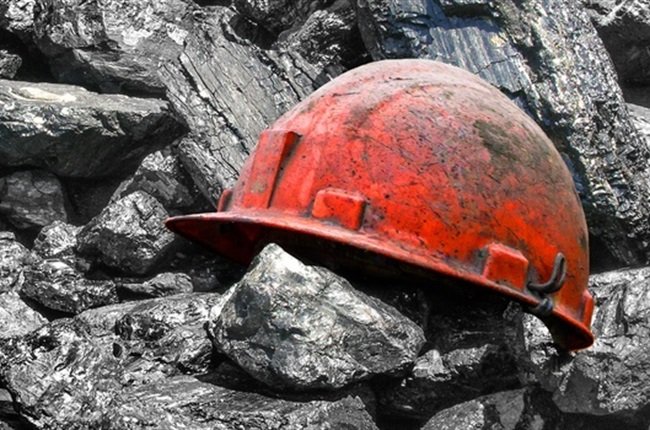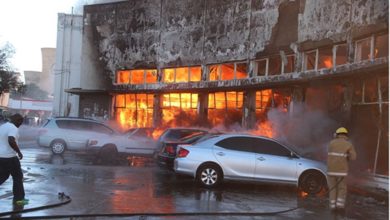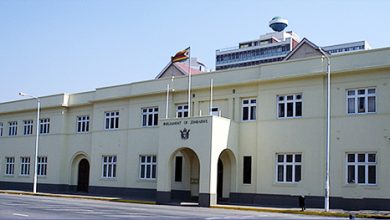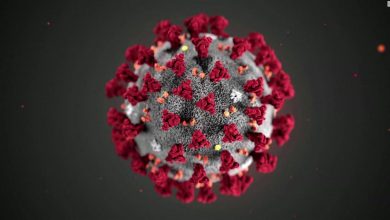Child abuse cases rife in mining communities as Covid-19 bites

By Nyasha Dube and Priscilla Makondo, Zvishavane
Thousands of children in mining communities engage in illegal artisanal mining, a 2020 survey by the Zimbabwe Environmental Law Association (ZELA) has revealed.
As a result, their literacy rate is lower than the national average and they are more vulnerable to opportunistic infections.
Located in Midlands province are two artisanal mining infested areas, Zvishavane and Mberengwa. The two places are more similar than different because of the unregulated mining activities that take place.
The lack of clear frameworks that control artisanal mining has left children exposed to all forms of violations, with minimal protection from parents, lawmakers and law enforcers. The challenge is not only in Zvishavane, but other mining communities in the Midlands province which include Shurugwi, Silobela, Kwekwe and Lower Gweru.
Cases of child labour and sexual abuse are rampant and have become a norm. While these happen in every other community, but what’s glaring about mining communities, in particular, is the lifestyle which includes early engagement in risky sexual behaviours, transactional sex, dropping out of school among others, which young children have learnt to exist or rather survive in.
This is worsened by socialisation where children are culturally viewed as a source of labour. The COVID-19 pandemic also worsened this challenge as most children in these communities could not afford e-learning services and ended up dropping out of school to venture into artisanal mining or any other related trade such as selling goods to miners.
Taona* is a 12-year-old boy who is a vendor at one of the mining sites in Mberengwa. He is sitting with his mother, wearing a reflector written “airtime” at the back. Taona and his mother sell goods such as airtime, fruits and other consumables to miners.
“I dropped out of school in grade six. When Covid-19 started my mother could not afford to pay my school fees or buy me a phone so I could attend online classes. We thought it was better if I join her in vending. We make reasonable money from it and I doubt I will go back to school”, said Taona.
His mother, who spoke on condition of anonymity said she is aware of children’s rights as enshrined in the constitution but she had no other choice.
“I’m well aware that Taona should be going to school but when the pandemic started I could not afford money for extra lessons or buying him a new phone for e-learning. I also have never used a smartphone because I cannot afford it. The only option left was for him to help me fend for the family,” said Taona’s mother.
Taona’s story is a sad reality for many children in Mberengwa and Zvishavane who find themselves engaging in child labour.
Some even work in machete-zones such as the Mazvihwa Sabi area, where every month or two a case of machete related violence is reported, which almost always results in severe injuries and death.
A source from the Zimbabwe Republic Police Zvishavane admitted that they have dealt with a number of cases involving machete violence in the area and that they see young children working in these high machete zones, but said the force is not at privilege to provide detailed information about the cases.
There has also been an eruption of gold trading spots popularly known as “pa base”. These are prominent in urban Zvishavane. These gold traders lure girls as young as 13 to 14 years, engage in unprotected sex and sometimes impregnate or infect them with HIV and STIs.
One of the young girls Lynn* who is a victim narrated her ordeal.
“My two friends who were in form one are the ones who had direct contact with “vakomana vepa base”, I was in grade seven by then. They told me if we go there we will get pocket money. I didn’t know they were talking about selling sex. We got there and everyone else disappeared. I was left with this 22-year-old boy. He forced himself on me the first time then gave me a $2 note. My friends told me I would get used to it and eventually I started enjoying the whole thing. My parents were not aware until I got pregnant. By then I had slept with three different guys so I could not tell which one is the father. I gave birth but I had to drop out of school. I hope one day I will continue with my education,” she said.
This shows how children in mining communities are vulnerable and need special protection.
The Children’s Act Chapter 5:06 makes it an offence for children to be exploited through employment, and the Zimbabwe Labour Act also prohibits the employment of children under the age of 18.
Section 81 of the Zimbabwe constitution also speaks to the rights of children to be protected from any form of harm, whilst section 73 provides the right to an environment which is not harmful to health, with proper sanitation and health facilities. However, it becomes difficult to implement these laws because of the informal nature of child employment in mining areas.
A June 2021 report by ZELA on Extractive industries and environmental child rights in Zimbabwe states that some children in mining communities are involved in illegal mining without proper protective clothing, whilst others engage in illicit behaviours such as gambling with miners, prostitution, operating brothels among others, which often leads to their arrest for unruly behaviour.
The report, which was conducted in Marange and Chimanimani, shows that 22.4% and 13.7% of the children respectively, were arrested during the reporting period for illicit behaviour related to illegal artisanal mining.
Child rights organizations define child abuse as any form of abuse which removes dignity and causes harm, whether intentional or unintentional.
Bethany Project programmes officer Ngonidzashe Sesemani says through their research as an organisation they have noted high cases of sexual abuse.
“Children who sell goods in mining areas get abused in those spaces and usually they end up dropping out of school. Currently, we are supporting a group of 18 teen mothers who are also school dropouts,” he said.
Sesemani added that there is a trend of child marriages as a result of premature sex with miners. According to their research, 36 young girls dropped out of school to get married in 2020, whilst 24 young girls met the same fate during the period January to June 2021, thereby showing an increase in school dropouts and child marriage.
The research was conducted in 8 Zvishavane wards which are Ture, Dayataya, Mapirimira, Ngome, Urban, Mhototi, Murowa and Indaba.
Zvishavane District Hospital Doctor Wallace Hlambelo also says young children in mining areas are at high risk of HIV and STIs.
“As of December 2021, HIV prevalence for Zvishavane was 16 to 16.7% whilst national prevalence is 12.9%. There is also a high prevalence of people defaulting medication as well as increased rates of opportunistic infections like TB and meningitis,” said Dr Hlambelo.
Dr Hlambelo, however, said the statistics are hard to track because the affected children shun away from hospital care.
“Children who fall pregnant or contract STIs usually do not come for check up hence it’s hard to monitor them or find accurate statistics. The COVID-19 pandemic also posed another barrier as most were restricted from travelling, but HIV and STI in children is generally high in mining communities,” he said.
He also added that young girls are at high risk in mining communities.
“There is high teen pregnancies, children as young as 14 or 15 come to give birth. This other time we had a 13-year-old giving birth. Such premature sexual activities and giving birth pose a lot of risks such as cervical cancer, giving birth to unhealthy babies and even psychological complications as most of these babies are unwanted,” said Dr Hlambelo.
According to a 2020 report by ZELA titled “Impact of COVID-19 response mechanisms on children in selected gold mining communities in Zimbabwe”, children in mining communities venture in economic activities such as vending, illegal mining and transactional sex to raise money for school fees and help cover family costs. Most of these children desire to go back to school, but after discovering the new hunting ground they always change their minds, their safety is compromised, they are often trapped when shafts collapse and some even end up engaging in illicit activities like drug abuse, theft and operating mini brothels.
Organising secretary for Amalgamated Rural Teachers Union of Zimbabwe (ARTUZ) Allan Mpofu says pass rates for schools in mining communities are very low and literacy rates in these areas are lower than national average.
“One third of children engage in artisanal mining whether they have dropped out of school or are still in school, and the pass rates in mining communities for grade seven, form four and A level are very low. Without intervention there is little development in these areas,” he said.
He was seconded by Progressive Teachers Union president Takavafira Zhou who said mining communities tend to prioritise money over education.
“269 000 pupils between grade 6 and form 2 in artisanal mining areas drop out of school every year. In Zimbabwe, one can go to school, get a degree then become unemployed. But in mining communities, if you are lucky you get a gold nugget and become rich overnight but these children always end up making uninformed decisions and recklessly spend that money because of illiteracy. That is why we have what we call a “resource curse” where areas with wealth end up underdeveloped,” said Zhou.
The International Labor Organisation report on Child labour, global estimates 2020 states that globally, 160 million children engage in child labour. 89.3 million are aged between 5 – 11 years, 35.6 million aged between 12 – 14 and 35 million aged between 15 – 17.
The report further states that child labour is three times higher in rural areas than urban, and artisanal mining forces children to work in deep underground shafts, haul heavy loads of toxic chemicals, leaving them vulnerable to physical, sexual and verbal abuse.
*Not their real names






